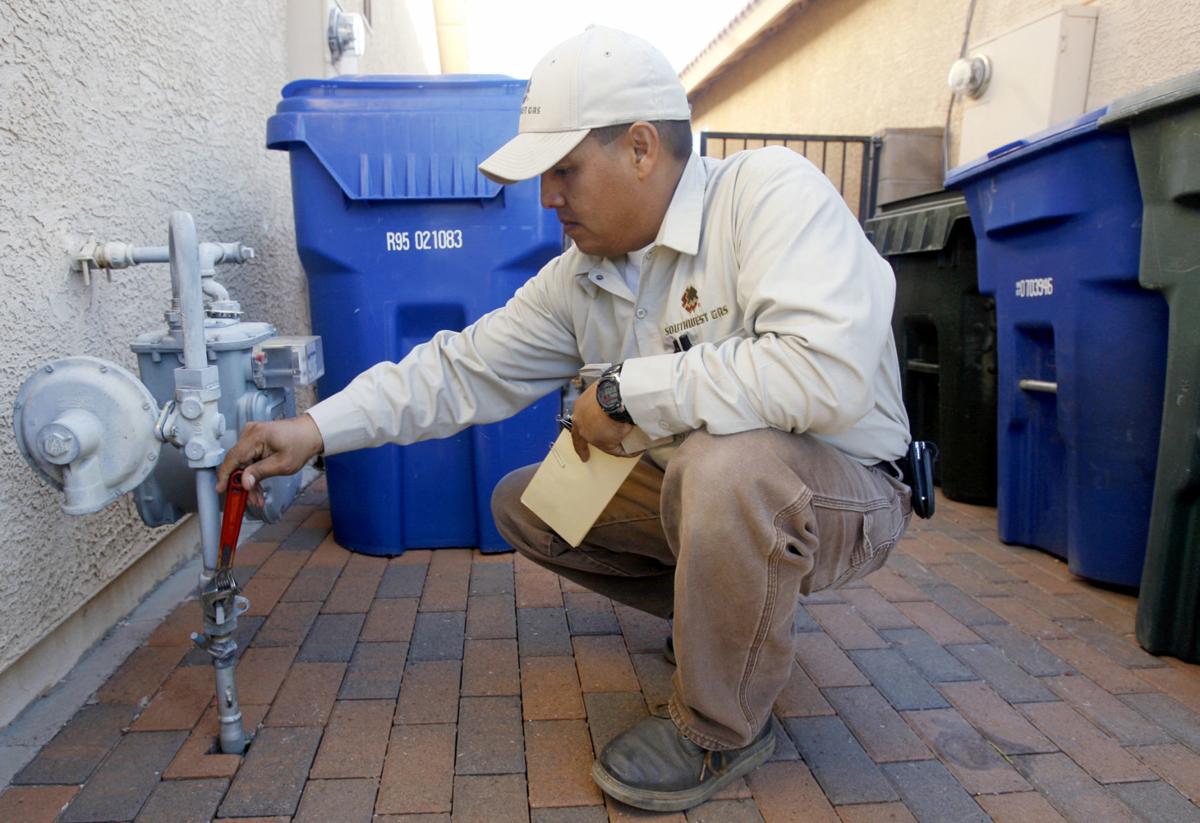Natural-gas customers across Arizona can expect their bills to rise this winter as wholesale gas prices across the nation have more than doubled across the nation in the past year.
Southwest Gas Corp., which serves the metro Tucson and Phoenix areas and much of the rest of the state, said customers can expect their winter bills to top last winter’s but hasn’t estimated the bill impact.
UniSource Energy Services, which provides natural gas to more than 163,000 customers in much of Northern Arizona as well as Santa Cruz County, says it expects home gas bills to rise 4% to 11% this winter.
For residential customers with typical usage, that will result in a monthly bill increase ranging from about $2.50 to $8.50, though the actual impact will vary based on weather and individual usage, said UniSource, a sister company to Tucson Electric Power Co.
Both gas companies buy natural gas and pass those costs along to customers with state approval and without any markup, through variable charges on their bills.
UniSource and Southwest Gas — which don’t produce their own gas and rely on wholesale markets for supply — cited the spiraling cost of natural gas nationwide, which has been blamed on rising demand and tight global supplies as the economy recovers from the pandemic.
“Federal officials expect the price of natural gas to increase due to national supply concerns and rising demand on the system,” Southwest Gas spokeswoman Amy Washburn said.
In October, the spot price for natural gas in North America averaged $5.51 per therm, or million British thermal units (Btus), compared to an average spot price of $2.39 per therm in October 2020, according to the U.S. Energy Information Administration.
The EIA, in its latest short-term energy outlook, forecasts that natural gas prices will flatten in the coming months before declining sometime in early 2022.
But Arizona natural-gas customers aren’t expected to pay double for their gas, thanks to forward purchases gas utilities make and regulatory mechanisms that smooth out costs to consumers.
Though recent price increases will have an impact on bills this winter, much of the natural gas customers will use this winter was purchased when prices were lower, UniSource notes.
In addition, monthly gas costs are calculated on a 12-month, rolling average to smooth out volatility and price spikes on customer bills, Washburn noted.
The high price of natural gas also will be passed on to Arizona consumers on their power bills.
Tucson Electric Power and other electric companies buy gas to fuel gas-fired generation plants, and TEP and others have relied on expansion of gas-plant capacity to offset losses of coal-fired plants due to environmental concerns.
TEP recently filed documents with state regulators indicating it will ask for an increase in a bill surcharge that pays for fuel and purchased power early next year, after an increase to recover prior costs was delayed to help customers weather the COVID-19 pandemic.
TEP spokesman Joe Barrios said it’s too early to estimate any billing impacts from a change to the surcharge, which sometimes results in a credit when costs go down.
The usage-based surcharge is usually adjusted in small increments and results in a few dollars’ change, plus or minus, on customer bills.
In a filing with the Arizona Corporation Commission, TEP says it needs to raise part of the fuel and purchased-power surcharge that compensates the utility for past costs — normally calculated in tenths of a cent per kWh — to just over a penny per kWh.
TEP plans to file for an adjustment to the surcharge by February, Barrios said, noting that TEP makes no profit from the pass-through charge.
Saving on gas
Southwest Gas offers the following recommendations for saving on your gas bill:
Set the daytime thermostat between 65°F and 68°F, health permitting, and the nighttime temperature at a lower setting.
Regularly change or clean air filters as required to help heating units use less energy and work more efficiently.
Adjust vents in the kitchen, if available, since kitchens are particularly vulnerable to excessive warming, especially from the extra heat generated by cooking.
Seal leaks and cracks around doors, windows and other openings with caulk or weather stripping, to help keep warm air inside the home and the cold air out and save up to 20% in heating costs.
Curb the use of non-essential natural gas features, including pool and spa heaters and decorative fire features, to help conserve natural gas.





